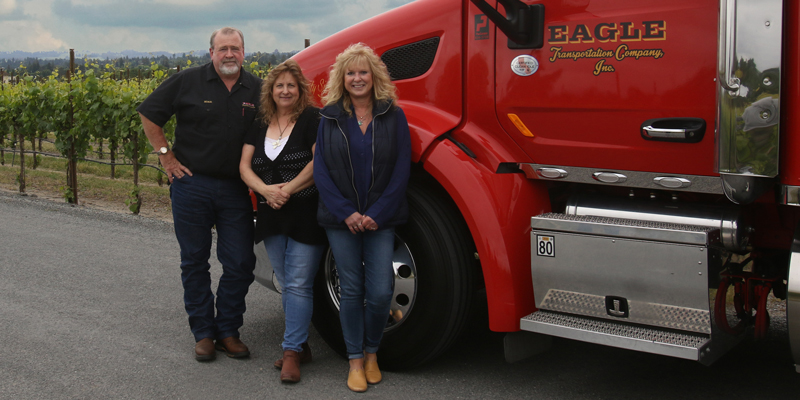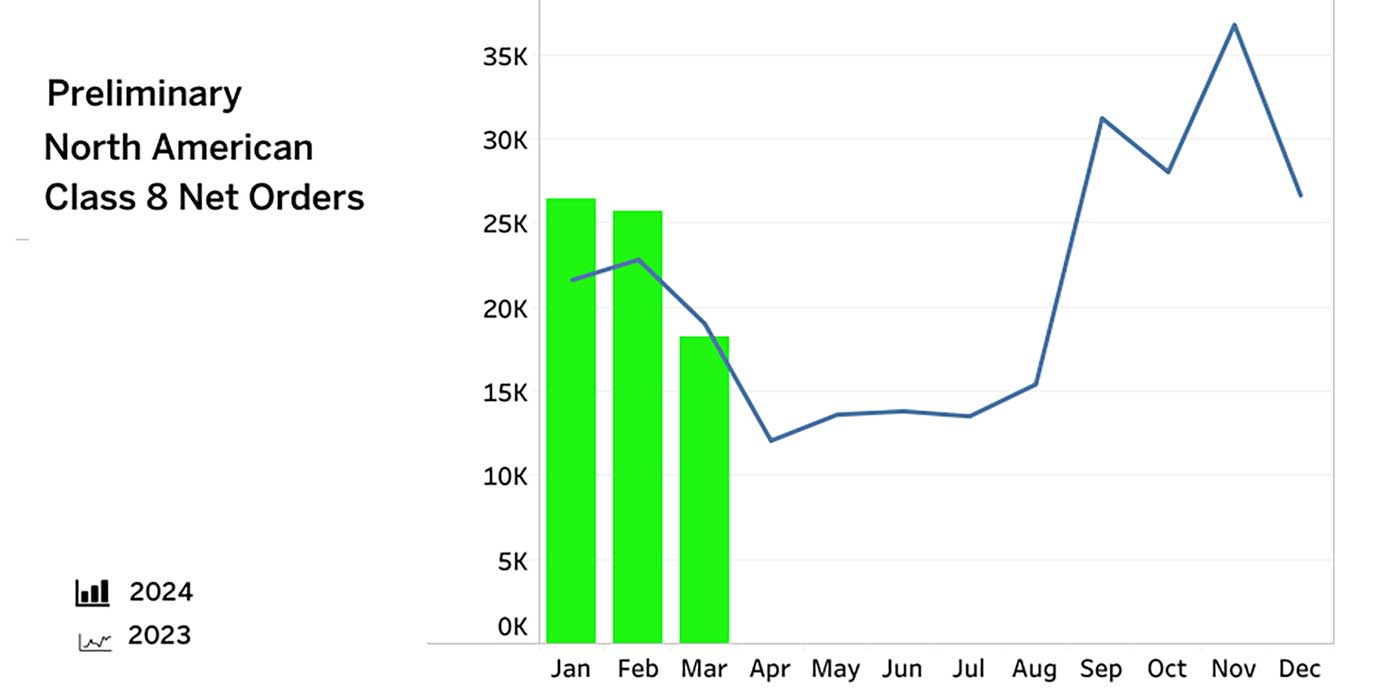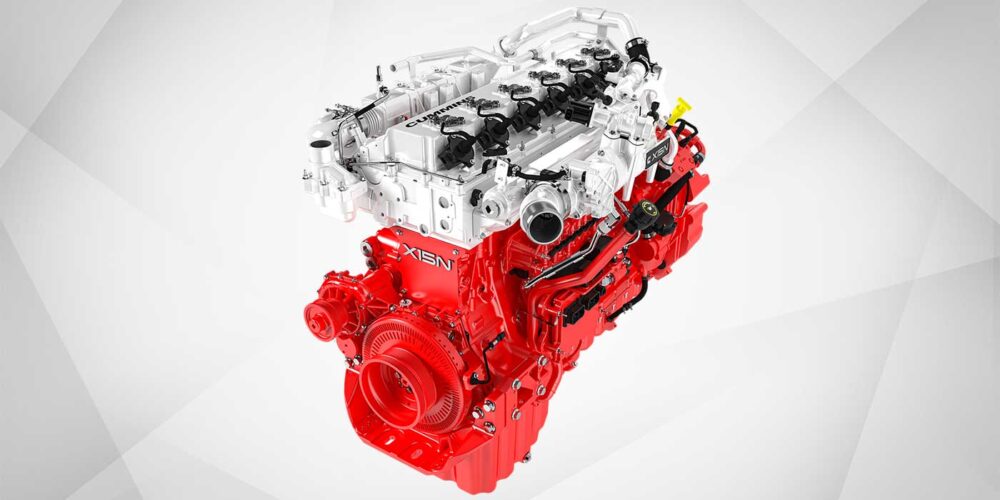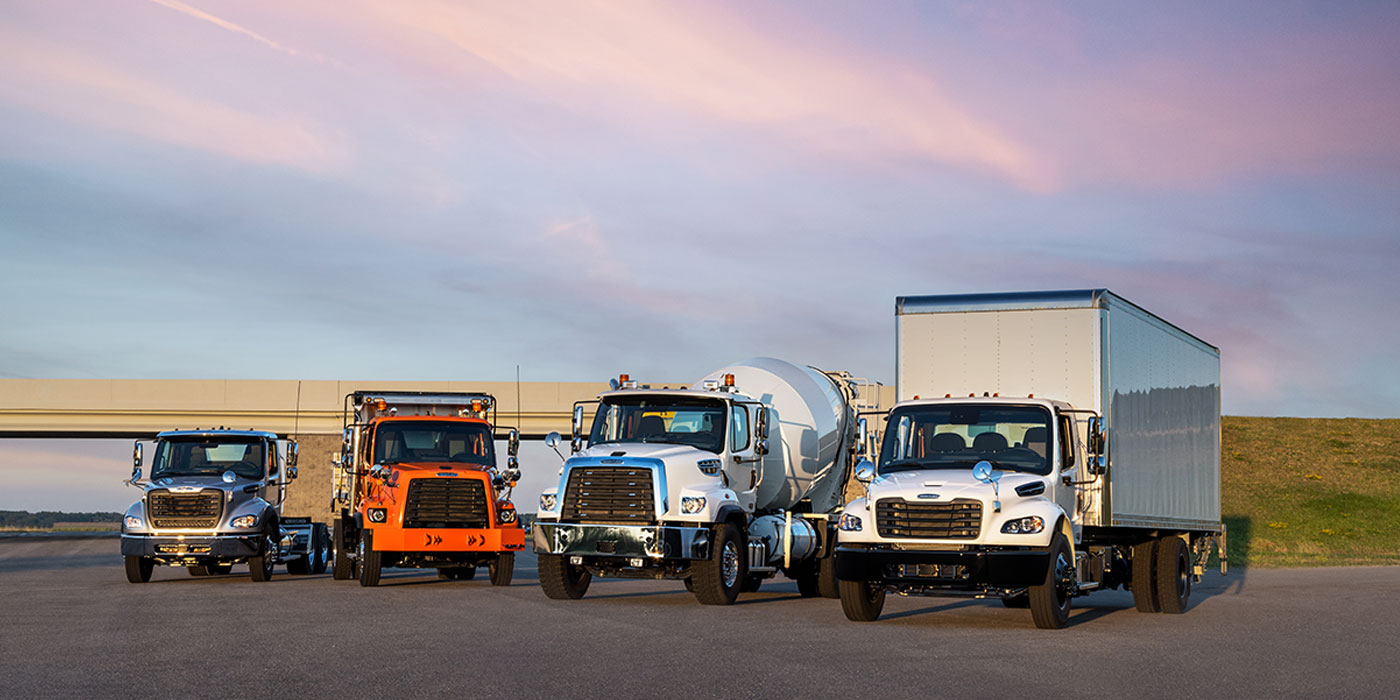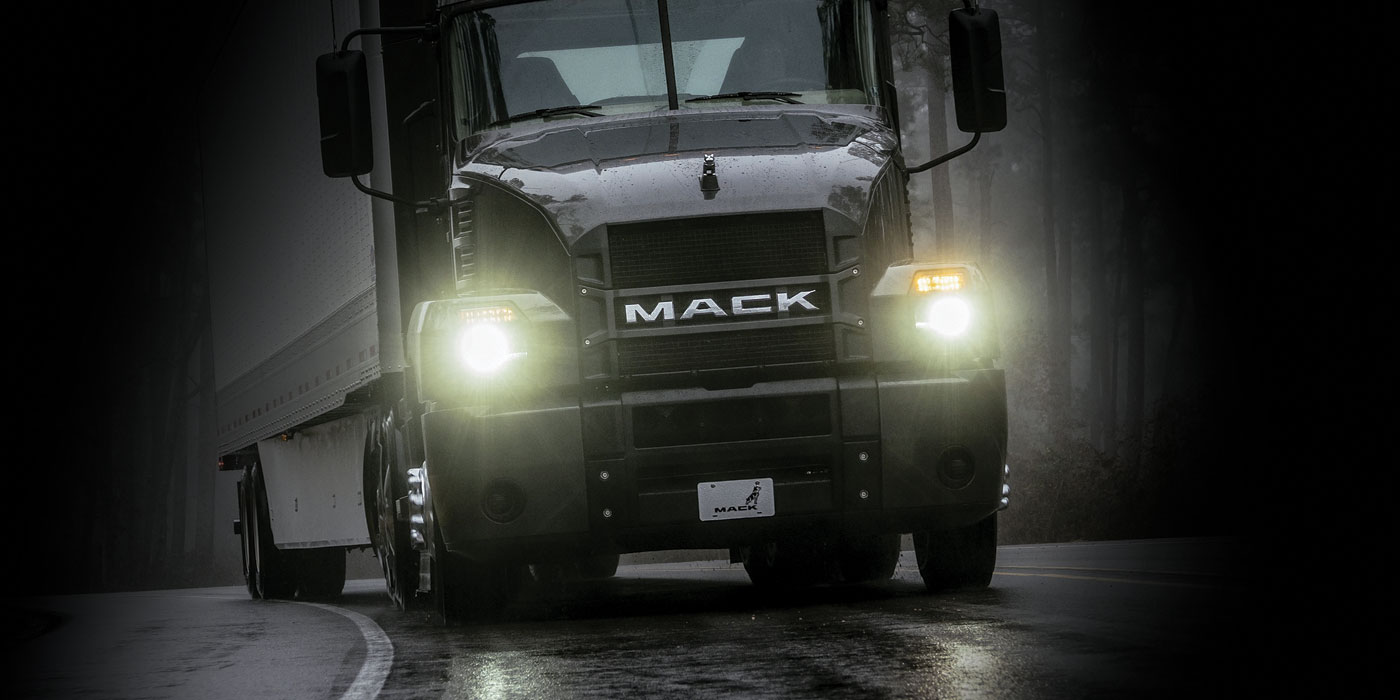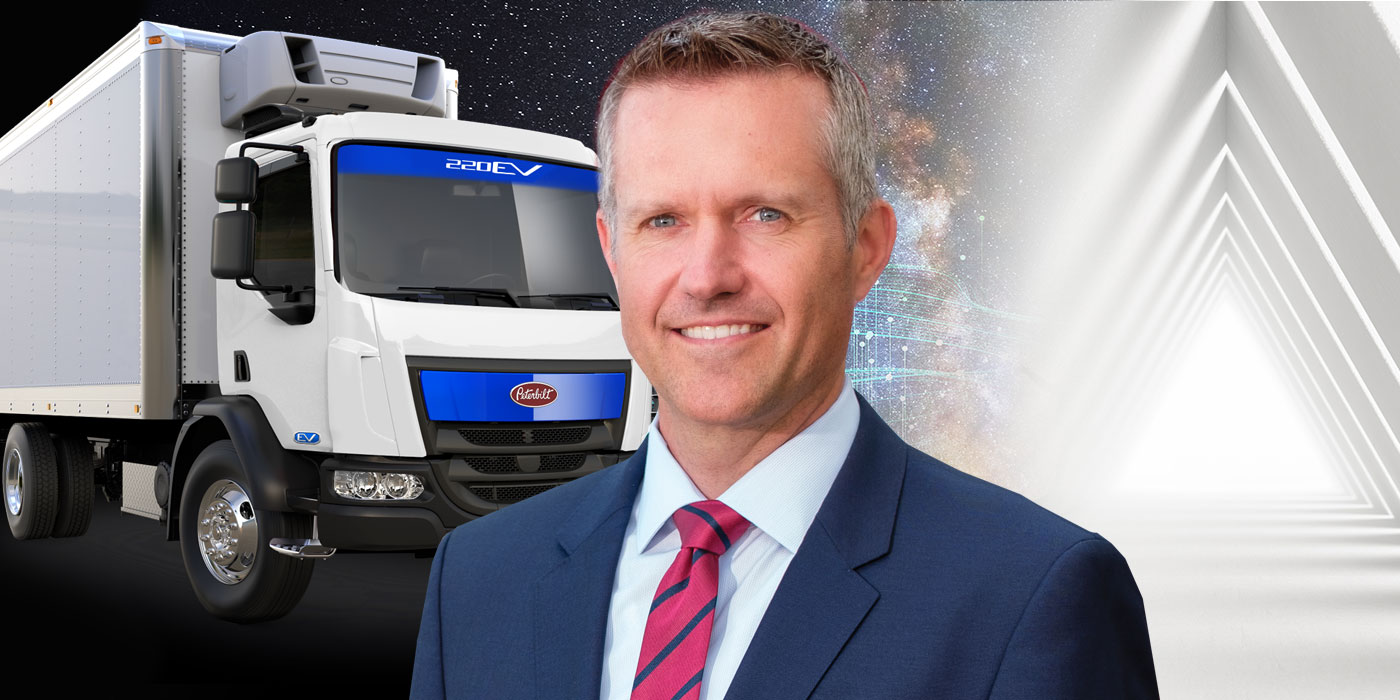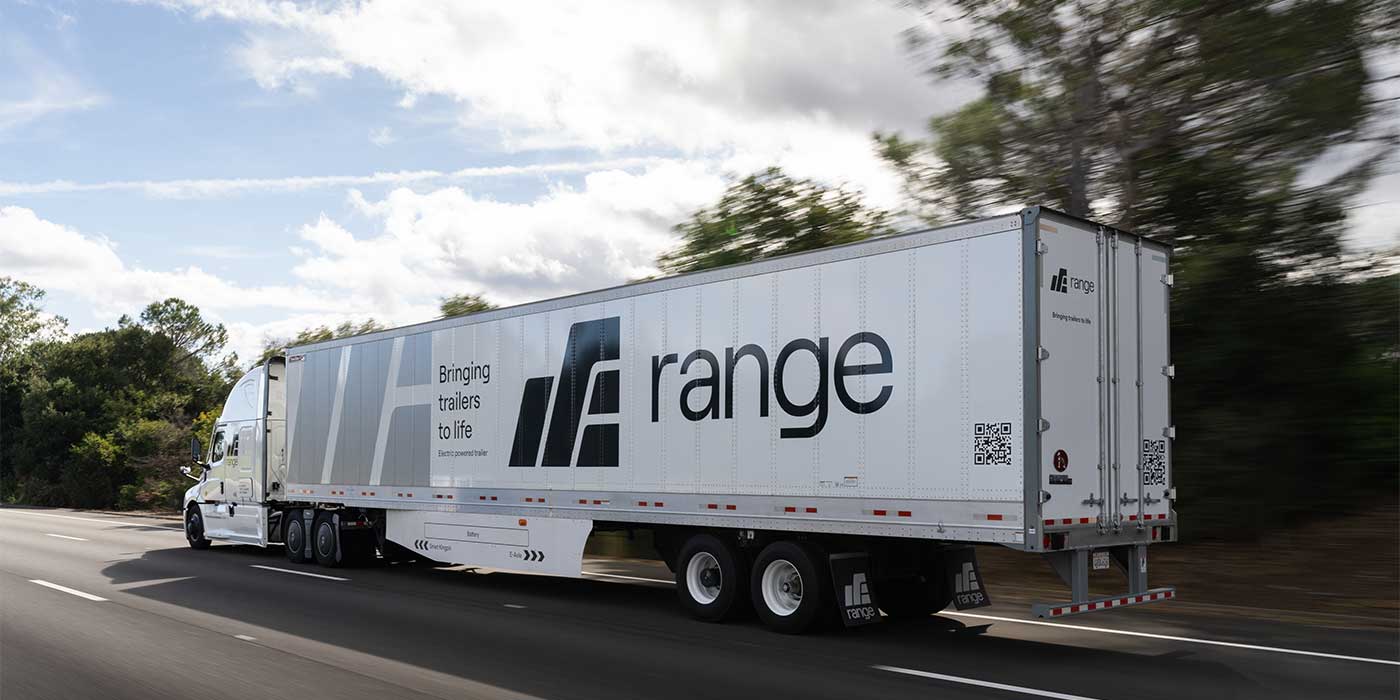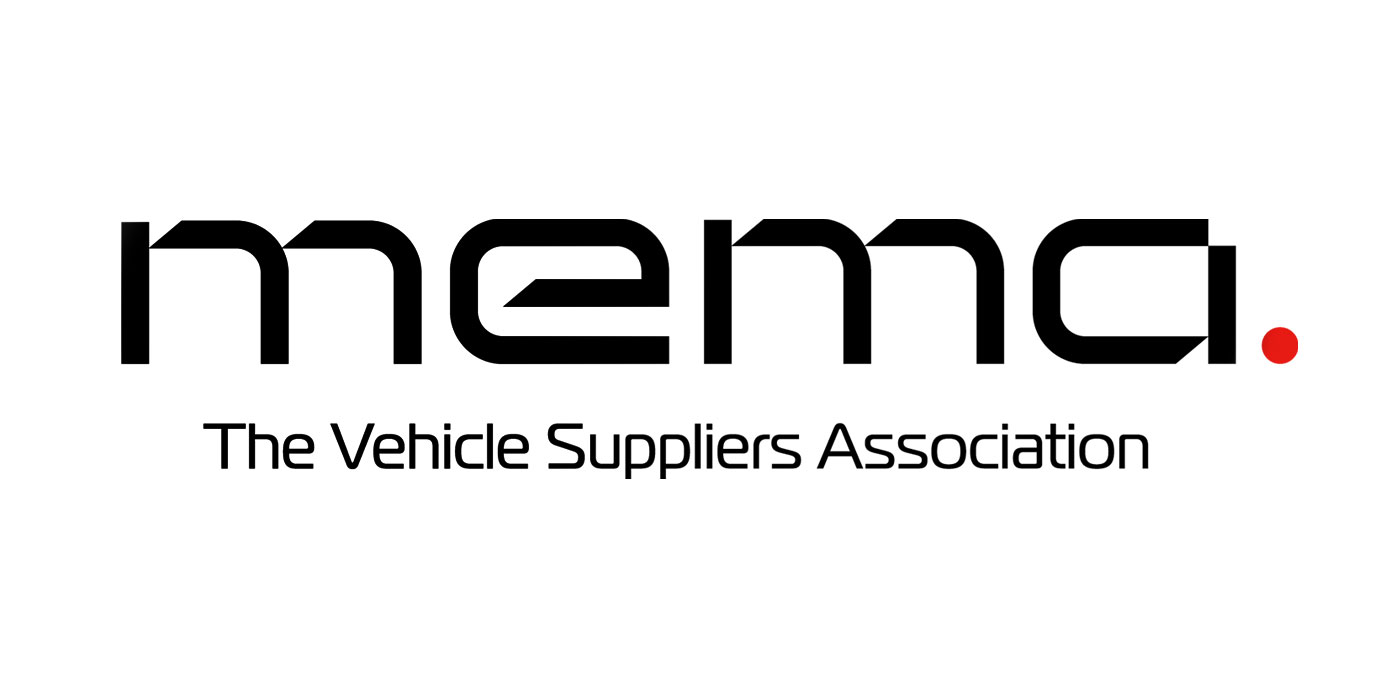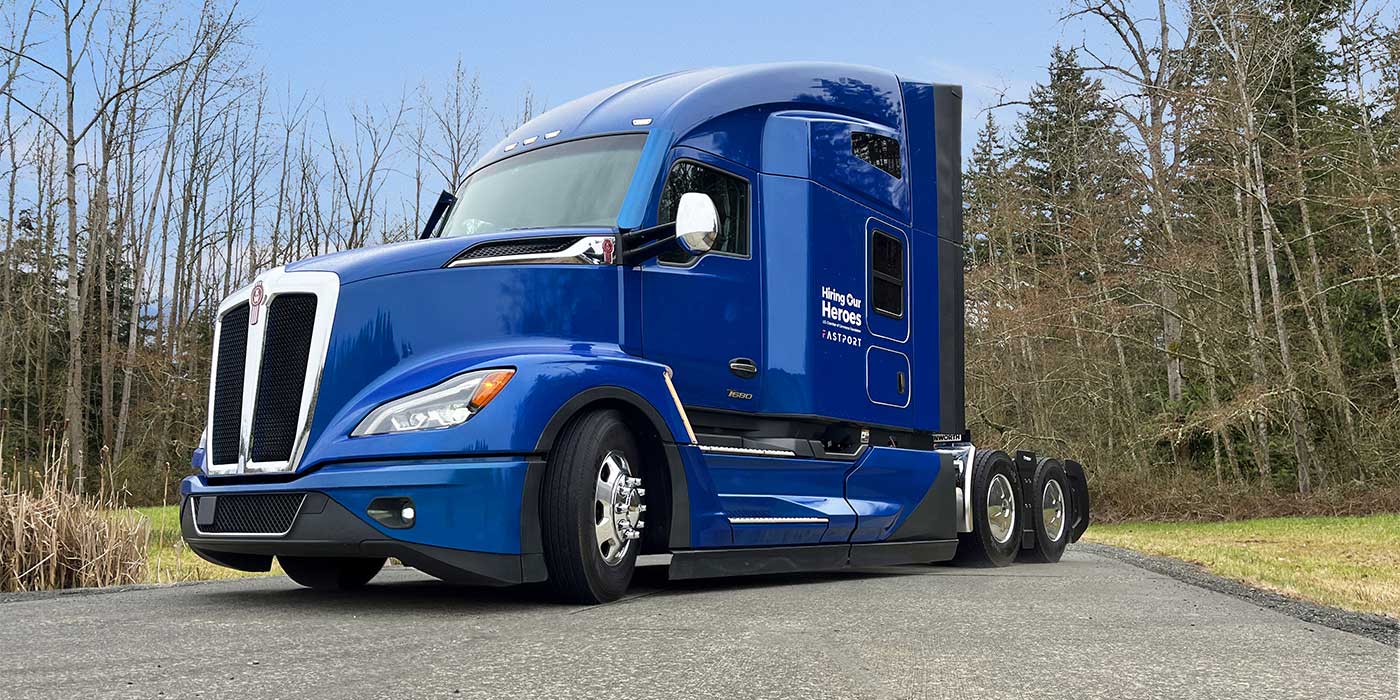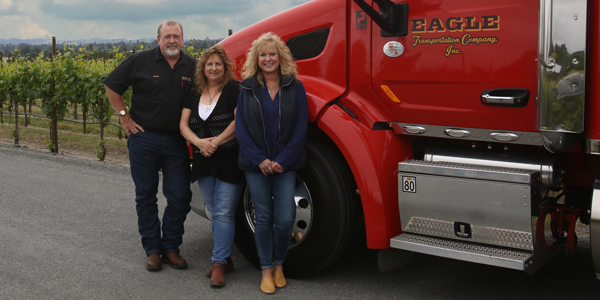
At Eagle Transportation Co., it’s all about productivity and uptime. “In the past, a down truck could cause missed pickups and deliveries, and driver overtime,” says Mike Brady, the company’s president. “That was a costly problem, especially during the fall harvest period, so uptime is everything in our business.”
That business, which Mike and Kim Brady, along with Jeannette Moneymaker, purchased from its original owners in 2015, started in 1977 as a spin-off of a beer distributorship. Over time, the company branched out into the wine industry, transporting juices, wine and bottles, and offered warehousing services.
“It just grew from there because we are located in Santa Rosa, Calif., in the heart of wine country,” Moneymaker says. “There are more than 400 wineries in the Napa Valley, and California as a whole produces 90% of all U.S. wines, so wine and bottle distribution is big business.”
Today, Eagle Transportation operates mainly within a 75-mile radius of Santa Rosa, but also has runs as far as Bakersfield, which is about six hours away. The company fields about 30 tractors and has 50 dry vans for glass and finished case goods, and a variety of tankers for bulk wine.
Tankers in the Eagle Transportation fleet are almost entirely West Mark stainless steel, specially vented units in single-, two- and three-compartment configurations to haul various products simultaneously. The trailers range in size from 6,450 to 6,650 gal. Most common are the 6,500-gal. units.
“Our extensive inventory of bulk wine tanker trailers ensures that we can supply the right equipment when our customers need it,” Brady relates. “Likewise, for dry vans we have 48-ft. units, which allow us to comply with 65-ft. length restrictions on some routes, as well as 53-footers and high cube models for carrying empty glass products.”
“The automated manuals have also helped improve fuel economy. Along with multi-torque engines, compared to the trucks we still have in ownership we’ve seen a 33% improvement. When you look at the impact of that, it’s $7,000 per year, per unit in savings.”
Mike Brady, president of Eagle transportation co.
About half of the current dry vans at Eagle Transportation are company-owned, while Xtra Lease supplies the balance. “That gives us the ability to have a mix of units and to meet changes in demand at any time,” Moneymaker says. “Through our experience with tractors we’ve learned how leasing can benefit our business.
“When we took over ownership, Eagle Transportation had a mix of owned vehicles, plus operated 10 to 12 rental tractors,” Moneymaker continues. “We didn’t think that was optimal, and our company-owned trucks were of various ages and some did not meet CARB emissions regulations. We knew we needed new trucks and we didn’t want to rent vehicles daily so we began looking for an alternative.”
Eagle Transportation was also familiar with Coast Counties Peterbilt. The local PacLease franchise had been providing the company with five trucks in an unbundled lease arrangement, under which the carrier’s mechanics handled maintenance in its own facility.
“We discussed our operation, growth plan and in-house maintenance capabilities, and based on our business model it became apparent that leasing was a better fit for us,” Brady says. “We were always staunch advocates of owning and maintaining our fleet but with leasing we could operate newer equipment and retain capital for operations and other investment needs.
“In addition, ongoing advancements in truck technology were making it more difficult for a fleet of our size to hire, train and retain qualified technicians,” Brady continues. “Leasing also allowed us to re-deploy our maintenance staff to handle the needs of company-owned trailers.”
Initially, Eagle Transportation opted for a two-year full service lease program from PacLease. “We wanted to start slowly to make sure leasing was the right decision,” Moneymaker says, “but we immediately began saving money by returning the daily rental trucks we were operating. After one year, we took the opportunity to upgrade from the short-term lease agreement to a long-term program.”
Joining the Eagle Transportation fleet under that agreement were Peterbilt 579 day cabs and one Model 579 with a 44-in. sleeper. Nine months later, five more Peterbilt 579s were placed in service. Today, the company operates 15 PacLease units and is planning to transition its remaining company power units into full service leases.
“A majority of our drivers now prefer automated manuals to help reduce fatigue. Safety features are one of the biggest things we hear about in our monthly driver meetings.”
MIKE BRADY, PRESIDENT OF EAGLE TRANSPORTATION CO.
Another benefit Eagle Transportation has realized, according to Mike Brady, is that it is now able to use one tractor model for both its heavier bulk tanker hauls and its lighter weight dry van loads. “With a 180-in. wheelbase and a sliding fifth wheel, the Peterbilt Model 579 works well for both parts of our operation,” he says.
“It also means drivers don’t have to adjust to different equipment, and that helps with retention,” Brady adds. “We lost a lot of the workforce in this area due to wildfires, so there are fewer drivers available. Along with re-evaluating pay scales and benefits, we know that equipment is a big factor in recruiting.”
One specification choice at Eagle Transportation, which Brady says reflects driver preferences, is for automated manual transmissions. “A majority of our drivers now prefer automated manuals to help reduce fatigue,” he relates. “Safety features are one of the biggest things we hear about in our monthly driver meetings.
“The automated manuals have also helped improve fuel economy,” Brady continues. “Along with multi-torque engines, compared to the trucks we still have in ownership we’ve seen a 33% improvement. When you look at the impact of that, it’s $7,000 per year, per unit in savings.”
Along with an equipment and maintenance plan, the Bradys and Moneymaker have been focused on streamlining the operations side of the business at Eagle Transportation. “We’re in the process of designing a custom back office solution to replace a 25-year old system that no longer has provider support,” Moneymaker relates.
“For 10 years we’ve used Fleetmatics, which is now Verizon Connect, to track vehicle locations and we’re in constant contact with drivers over the AT&T Enhanced Push-to-Talk network,” Moneymaker continues. “Some of our larger customers require that visibility into loads, and knowing where everything is at all times adds customer service value.”
Before taking ownership of Eagle Transportation, Mike Brady and Jeanette Moneymaker had both worked for the company for close to 30 years. Brady started his career as a driver before moving into dispatch, where he joined Moneymaker in handling loads. Today, along with Kim Brady—who serves as treasurer and office manager—they’re using that experience with the business to keep loads moving efficiently.
“Since 1977, vineyard owners from throughout Northern and Central California have trusted Eagle Transportation,” Mike Brady says. “We’ve worked hard to earn their trust and to develop close relationships. With a fleet that adheres to the highest standards, and with the highest levels of professionalism and service from our drivers and staff, we will continue to do so.”
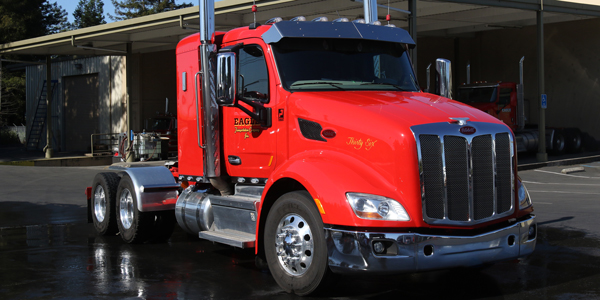
Eagle Transportation Tractor Specifications
Model: Peterbilt Model 579, day cab; thermal and SmartSound insulation, rear window
Wheelbase: 180 in.
Engine: PACCAR MX-13; 455 HP, multi-torque
Transmission: PACCAR 12-speed automated manual
Driveline: SPL 170 XL
Front Axle: Dana Spicer D1251IL; wide track, 12,500-lb.
Front Suspension: taper leaf springs, Tenneco shock absorbers
Power Steering: Sheppard HD94
Rear Axle: Dana Spicer D40-155 AdvanTek40; 40,000-lb., 2.93 ratio
Rear Suspension: Peterbilt Flex Air
Hubs: PHP10 PreSet Plus hubs
Brakes: Bendix Air Disc
Stability Control: Bendix Wingman Fusion
ABS: Bendix 6S6M
Wheels: Alcoa aluminum; Dura-Bright finish
Tires: 275/80R22.5 Michelin; X Line Energy Z steer, XDN2 drive
Tire Pressure Monitoring: Bendix SmarTire
Fifth Wheel: SAF-Holland FW35, sliding
Air Compressor: WABCO 25.9 CFM
Air Dryer: Bendix AD-IS, heated
Fan Clutch: two-speed
Batteries: (3) PACCAR; 2,190 CCA; Intellitec Big Boy disconnect switch
Starter: PACCAR
Alternator: PACCAR 160 amp
Fuel/Water Separator: PACCAR
Mirrors: Peterbilt Aero; motorized, heated
Lighting: HID Xenon headlamps; LED marker, stop/tail/turn, backup
Seats: Peterbilt; LX air driver; ST passenger
Fuel Tanks: dual aluminum; 80-gal. RH, 70-gal. LH

